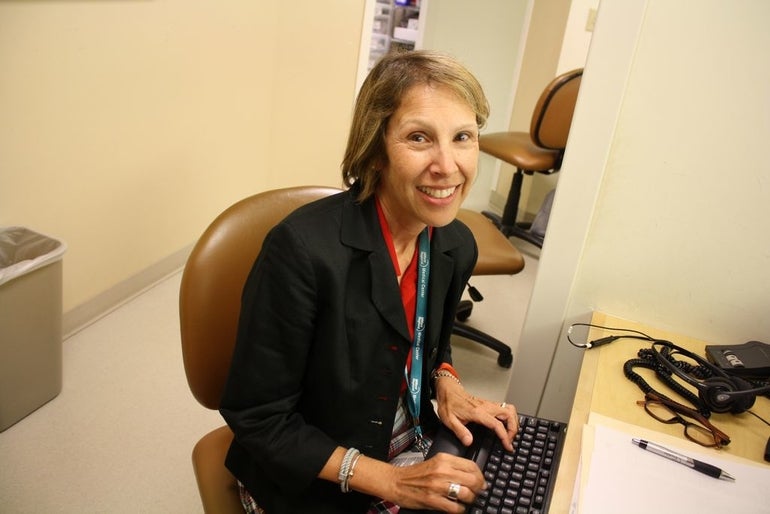Sterling resident Sandra Doyon knows well two sides of caring for patients in the hospital. Doyon, who holds a bachelor of science degree in nursing, began her career as a nurse working in medical surgical and intensive care units, before transitioning to case management, first in the insurance industry and then at Milford Regional Medical Center. Doyon has worked in case management at Milford Regional for 17 years and today covers the intensive care unit and a telemetry unit. In a recent interview, Doyon shared how managing patients’ care in the hospital and planning their transition home or to another facility is a challenge and a pleasure all at once.
Q: Why did you get into case management?
A: I think just because I got burned out (being a clinical nurse). In this job I still use my brain but I don’t have to do the physical work and also I don’t have to rotate shifts.
Q: How does it compare to a clinical role?
A: Working in the hospital, you actually feel like you’re more an advocate for the patient. We work on the floors … I go to rounds, and then I meet the patients and the families. So I still have the patient contact (but) I’m not doing the actual hands on. It’s a different kind of stress. A lot of families come in and have problems and they want you to solve them.
Q: What do you like most about your job?
A: If you can get them where they want to go and they’re doing well, and everything runs smoothly and everybody’s happy, then it’s a great job. You get a really good sense of satisfaction.
Q: What do you find difficult about it?
A: Sometimes people think we’re making decisions (about care) but we have to explain, this is (their) decision. I always say, “This is the recommendation, but you can choose to do whatever you want.” Sometimes physical therapy recommends short-term rehab and (patients) really don’t want to so they go home. Sometimes they do well, and sometimes they end up back here.
Q: How has your job changed over the last 17 years?
A: I think people are coming in more sick and people are living longer. We’re seeing a lot of 80- and 90- year olds and there are a lot more dementia patients, so that’s always an issue. One of the big things is for families to get health care proxies … Sometimes if people are totally demented and there’s no health care proxy, if you want to move them somewhere then that becomes an issue. If health care proxies are done then family members can have a say in what’s going to happen with their loved one.
Q: How do you try to curb readmissions, now that the Centers for Medicare and Medicaid penalize hospitals for excessive readmissions?
A: We do have a nurse now that follows and tracks readmissions and she’s actually doing home visits. Sometimes people are just so sick. They’re home and they come back and there’s nothing we can do. But we have been finding that a lot of people are non-compliant, especially with food, and (medication). Sometimes with meds it’s (a money issue) so social workers try to get involved. And some people just don’t bother to take their meds or they spend money on something else.
Q: What do you enjoy about working at a community hospital?
A: Sometimes when I tell people I work here they’re amazed that we’re not owned by anyone, and we are a nonprofit. We may end up keeping a patient an extra day; we’re not in such a hurry to get people out. If we come up with a good discharge plan, then that should prevent the (readmission). Then you save money that way. I think a lot of insurance companies and organizations look at the short term. I think when I worked at an insurance company that was one of the frustrations, because sometimes I would try to get somebody out of a benefit if I did a cost-benefit analysis. We’re here for the community and (we try) to do right by the patient, and hopefully the rest will follow.
This interview was conducted and edited for length and clarity by Emily Micucci.

